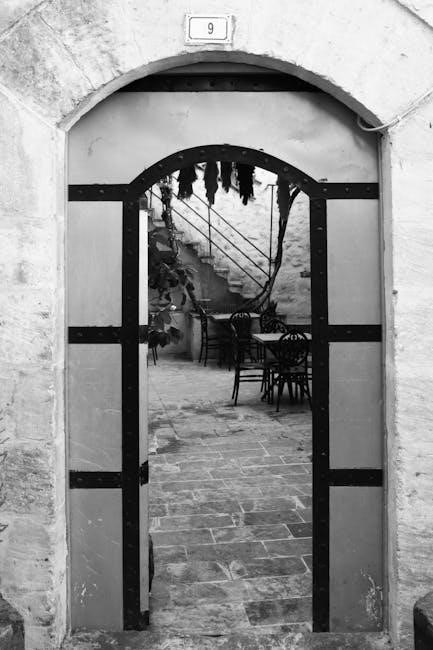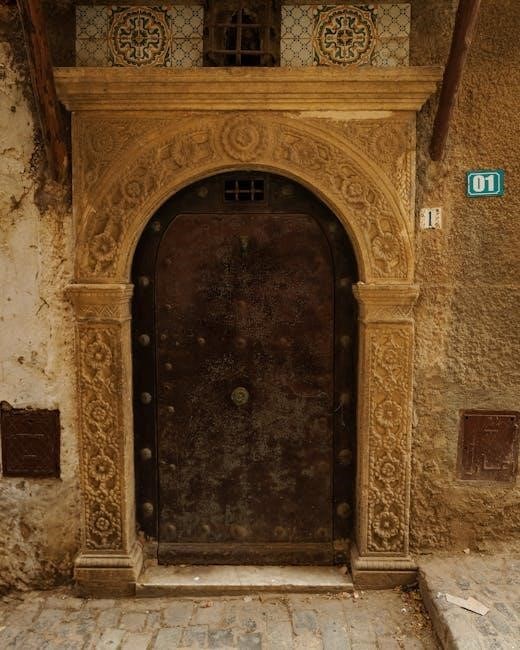Gedmatch is a powerful tool for analyzing DNA data, offering insights into ancestry and genetic connections. Basque DNA, known for its unique profile, has sparked interest in ancient origins.
By examining kit numbers and historical data, researchers uncover links between modern Basques and ancient populations, shedding light on their distinct genetic heritage and migration patterns.
Overview of Gedmatch and Its Role in DNA Analysis
Gedmatch is a platform enabling users to upload raw DNA data for advanced analysis, utilizing tools like GEDCOM files and chromosome browsers to explore genetic connections.
It allows comparison of DNA segments across different testing companies, aiding genealogists and researchers in tracing ancestry and identifying distant relatives through shared segments.
By analyzing kit numbers and genetic markers, Gedmatch helps uncover ancestral origins, including ancient connections, making it invaluable for studying unique populations like the Basques.
Who Are the Basques and Their Genetic Significance
The Basques are an indigenous ethnic group primarily residing in the Basque Country, an autonomous region in northern Spain and southwestern France. They are unique due to their distinct language, Euskara, and a genetic profile that sets them apart from neighboring populations.
Genetic studies highlight the Basques as one of Europe’s oldest populations, with a high frequency of specific haplogroups like R1b-DF27. Their DNA often shows minimal external influence, suggesting a deep-rooted history in the region. This genetic uniqueness makes the Basques a fascinating subject for ancient DNA research and ancestry tracing.
Significance of Ancient DNA in Basque Studies
Ancient DNA provides critical insights into Basque origins, revealing deep-rooted lineages and migration patterns. It bridges modern genetic data with historical contexts, enriching Basque heritage research.
Understanding Ancient DNA and Its Relevance
Ancient DNA is a cornerstone in tracing Basque origins, offering insights into their unique genetic profile. By analyzing ancient samples, researchers identify genetic markers that distinguish Basques from other populations, revealing deep historical roots. Gedmatch leverages these insights, enabling users to connect their DNA with ancient Basque lineages. The study of ancient DNA not only clarifies migration patterns but also highlights the Basques’ genetic continuity over millennia. Despite challenges like DNA degradation, advancements in technology have made it possible to extract valuable information. This knowledge bridges the gap between modern genetic data and historical contexts, enriching our understanding of Basque heritage.
Historical Context of Basque Origins and Genetics
The Basques, an ancient ethnic group from the Pyrenees region, have long fascinated scholars due to their unique language and genetic profile. Archaeological and genetic studies suggest a deep-rooted history, with evidence of continuous habitation since the Mesolithic era. Their distinct DNA, characterized by high frequencies of R1b haplogroups, indicates a potential link to early European populations. Gedmatch tools enable researchers to trace Basque DNA through kit numbers, connecting modern individuals to ancient lineages. This genetic continuity has sparked debates about their origins, with theories ranging from Paleolithic survival to Neolithic migrations. Understanding Basque genetics offers insights into Europe’s ancient demographic landscapes.

Using Gedmatch for Exploring Basque Heritage
Gedmatch enables users to upload raw DNA data, leveraging tools like One-to-Many and Chromosome Browser to explore Basque ancestry. By analyzing kit numbers, individuals can trace unique genetic markers linked to ancient Basque populations, uncovering deep-rooted heritage connections.
Navigating Gedmatch: A Beginner’s Guide
Gedmatch is a user-friendly platform for exploring genetic ancestry. Start by uploading your DNA data and exploring tools like One-to-Many and Chromosome Browser. These tools help identify genetic matches and map ancestral connections. Use filters to narrow results by ethnicity or geographic origin, focusing on Basque-specific markers. Enter kit numbers to compare profiles directly. For Basque heritage, look for shared segments with known Basque individuals. Utilize the Archaic Matches tool to explore ancient connections. Join Gedmatch projects dedicated to Basque ancestry for collaborative research. Always review privacy settings to control data sharing. With practice, Gedmatch becomes a powerful resource for tracing Basque roots and uncovering genetic history.
Interpreting Kit Numbers and Genetic Data
Kit numbers are unique identifiers for DNA profiles on Gedmatch, enabling users to compare and share genetic data. Interpreting this data involves analyzing chromosome segments and SNP markers to trace ancestry. For Basque heritage, focus on segments overlapping with known Basque kits. Use tools like the Chromosome Browser to visualize shared DNA. Ancient DNA kits, such as those from Bronze Age or Iron Age Europe, can reveal deep ancestral connections. Comparing modern kits to ancient samples helps identify genetic continuity. Understanding these matches provides insights into the origins and migration patterns of Basque populations, bridging the gap between modern and ancient genetic landscapes.
Genetic Studies and Unique Basque Traits
Basque DNA reveals unique genetic markers, such as R1b-DF27, distinguishing them from neighboring populations. Ancient studies highlight their distinctiveness, with minimal Neolithic farmer influence, preserving ancient European lineage.
Genetic Markers and Haplogroups Associated with Basques
Basques exhibit unique genetic markers, primarily linked to haplogroups such as R1b-DF27 and R1b-M269, which are prevalent in the region. These haplogroups highlight ancient European origins.
- R1b-DF27 is a distinctive marker, suggesting a deep-rooted European ancestry.
- Maternal haplogroups like H and U also show unique frequencies.
- Basque DNA often lacks significant Neolithic farmer influence, unlike other Europeans.
- Gedmatch kit numbers reveal ancestral connections to ancient Iberian populations.
These genetic traits underscore the Basques’ distinctiveness and their potential role as a bridge between ancient and modern European populations.
Unraveling the Genetic History of the Basque People
The Basques’ genetic history reveals a unique ancestral legacy, with evidence of ancient European roots. Gedmatch kit numbers and historical DNA analyses suggest a deep connection to pre-Indo-European populations.
- Genetic studies indicate the Basques have maintained a distinct genetic profile, separate from neighboring groups.
- Ancient DNA from Basque regions aligns with early European hunter-gatherers and farmers.
- Gedmatch tools, such as chromosome browsers, help trace ancestral segments to Basque origins.
These findings highlight the Basques as a living link to Europe’s ancient past, preserving genetic traits that have endured for millennia.
Case Studies and Success Stories
Gedmatch has enabled users to uncover profound Basque connections, with kit numbers revealing ancient origins. Success stories highlight individuals tracing deep ancestral roots through DNA matches.
Discovering Ancient Basque Connections Through Gedmatch
Gedmatch has revolutionized the exploration of Basque ancestry by connecting modern individuals to ancient populations. By analyzing specific kit numbers and genetic markers, users can trace their lineage back thousands of years. This tool bridges the gap between modern DNA and historical records, offering insights into migration patterns and cultural exchanges. For many, discovering these connections has provided a profound sense of identity and belonging to one of Europe’s most enigmatic cultures. The ability to map genetic heritage through Gedmatch has opened new avenues for researchers and enthusiasts alike, enriching our understanding of the Basque people’s enduring legacy.
Personal Stories of Tracing Basque Ancestry
Personal journeys of tracing Basque ancestry often begin with curiosity and unfold into profound discoveries. Many individuals have used Gedmatch to uncover hidden Basque roots, connecting their modern DNA to ancient populations. One user shared how specific kit numbers revealed a direct link to an 800-year-old ancestor from the Basque Country. Such findings not only illuminate family histories but also foster a deep sense of identity. These stories highlight the emotional impact of genetic exploration, as people uncover ties to a culture known for its resilience and uniqueness. These personal narratives inspire others to explore their own Basque heritage, bridging past and present through DNA.

Resources and References
Explore Gedmatch tools, academic studies, and PDF guides for Basque DNA research. Utilize library databases and expert forums to deepen your understanding of ancient genetic connections.
Available PDF Guides and Academic Studies
Various PDF guides and academic studies provide in-depth insights into Basque DNA and Gedmatch tools. These resources explore ancient genetic connections, offering detailed analyses of Basque-specific haplogroups and historical migrations.
Researchers can access comprehensive studies on Gedmatch kit numbers, enabling a deeper understanding of Basque ancestry. These materials bridge genetic data with historical context, aiding in tracing lineage and uncovering ancestral origins.
Academic papers and guides are essential for those exploring Basque heritage, combining cutting-edge research with practical applications for genealogical investigations. They serve as invaluable tools for both scholars and hobbyists alike.
Recommended Reading for Further Exploration
For deeper insights into Basque DNA and Gedmatch, explore academic papers and guides focusing on genetic genealogy. Books like “The Basques: The Catalans: The History and Genetic Legacy” offer comprehensive overviews of Basque origins.
Online resources such as “Basque DNA Studies” and “Gedmatch User Guides” provide practical tools for analyzing kit numbers and tracing ancestry. These materials are enriched with case studies and historical context.
Additionally, articles on platforms like ResearchGate and Academia.edu discuss ancient DNA and its relevance to Basque heritage, making them invaluable for further exploration.

Ethical Considerations in DNA Research
Ensuring privacy and informed consent is crucial in DNA studies. Ethical frameworks guide responsible use of genetic data, protecting individuals and communities while advancing scientific knowledge.
Privacy and Ethical Issues in Genetic Studies
Genetic research, particularly in platforms like Gedmatch, raises significant privacy concerns. Sharing DNA data can inadvertently expose sensitive information about individuals and their families, potentially leading to misuse. Ethical guidelines emphasize the need for informed consent and data protection. Ensuring anonymity and securing datasets is paramount to prevent unauthorized access. Additionally, cultural and ancestral data, such as that of the Basques, must be handled with respect, avoiding exploitation. Balancing scientific progress with ethical responsibility is essential to maintain trust and safeguard participants’ rights in genetic studies.
Responsible Use of DNA Information
Using DNA information responsibly involves respecting individuals’ privacy and cultural heritage. Gedmatch users should be cautious about sharing personal data and ensure they understand the implications of their actions. Researchers must adhere to ethical standards, avoiding harmful generalizations or misuse of genetic data. For Basque studies, it’s crucial to handle ancient and modern DNA with care, respecting the community’s identity. Education and transparency are key to fostering trust and promoting the ethical use of genetic resources for historical and genealogical purposes. By doing so, we preserve the integrity of DNA research and its benefits for future generations.
Gedmatch and Basque DNA studies reveal unique genetic insights, offering future research opportunities to explore ancient origins and connections, fostering a deeper understanding of human migration and heritage.
Summarizing Key Findings and Implications
The analysis of Basque DNA through Gedmatch has unveiled distinctive genetic patterns, linking modern populations to ancient European migrations. Kit numbers provide precise data for tracing ancestry, revealing deep-rooted connections to the Iberian Peninsula and surrounding regions. These findings underscore the Basques’ unique genetic heritage, suggesting isolation and preservation of ancient lineages. Implications include a better understanding of European population dynamics and the role of genetic diversity in human history. Furthermore, such studies highlight the importance of ethical considerations in DNA research, ensuring privacy and responsible use of genetic information.

Encouraging Continued Exploration and Research
The study of Basque DNA through Gedmatch highlights the importance of continued exploration and research in genetic anthropology. By analyzing kit numbers and historical data, scientists can uncover deeper insights into ancient migrations and population dynamics. Collaboration between researchers, geneticists, and enthusiasts is crucial for advancing our understanding of Basque origins. Additionally, sharing findings through accessible platforms and resources, such as PDF guides, ensures that knowledge is widely disseminated. Encouraging further investigation into Basque genetics can reveal new connections and shed light on unanswered questions about human history. This ongoing effort fosters a community-driven approach to genetic discovery and education.